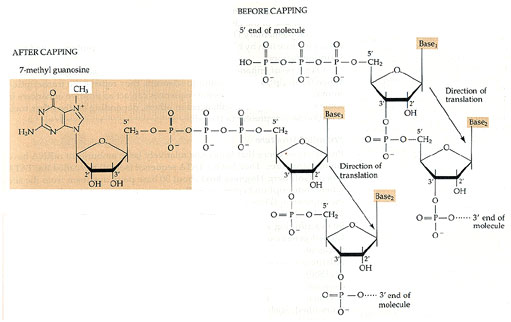You will have to see what your doctor has to say about the benefits. Questionnaire and symptoms at the link.
Eight Key Principles of Anti-Aging Medicine – #2 Growth Hormone
Growth Hormone (GH), the “Holy Grail” of anti-aging galaxy, consists of 191 amino acids (proteins) linked in a specific manner in a specific order. (1)
(Picture if you will, Legos ™ snapped together to make a windmill or a car or a boat and you get a sense of the specific nature and delicacy of Growth Hormone. We can take advantage of this order to create precursors, or secretagogues, to accentuate the positive, and limit the negatives of real Growth Hormone. See 2A. Protein Peptides)
Secreted by the anterior pituitary gland, GH stimulates growth and cell reproduction. It is released into the bloodstream in spurts or waves instead of continuously, peaks at bedtime, and has its greatest activity between 10 P.M. and 4 A.M.
When released into the bloodstream, HGH travels to various organs whose cells contain GH receptor sites. The liver is the site of action for growth hormone, converting them in to IGF-1, IGF-2, epidermal growth factor, vascular growth factor, nerve growth factor, and transfer growth factor. (2)
Youngsters with wide open growth plates grow tall and strong. After the growth plates close, age 17-19 on average, a steady, though diminished level of growth hormone is needed to maintain muscle strength, energy, mental clarity, memory, sense of wellbeing, libido, sleep, cholesterol profile, bone density, vision, skin tone, immune function, blood pressure, social skills, kidney, liver and heart function.
A 1991 study by Rudman, et. al., of twelve males with IGF-1 levels <350 were given 0.03 mg of Biosynthetic HGH per kilogram of body weight SQ 3x/week t=resulting in an:
- 8.8 percent increase in lean body mass
- 14.4 percent decrease in adipose-tissue mass
- 1.6 percent increase in average lumbar vertebral bone density (P less than 0.05 in each instance).
- Skin thickness increased 7.1 percent.
Growth hormone, along with testosterone, produces significant gains in lean mass, strength and aerobic endurance with significant reductions in whole body and trunk fat in older men. (4)
A 10-year prospective study revealed improved muscle strength in the first half of the study period and a preservation of that muscle strength and function in the second half of the study. (5)
Adequate growth hormone supplementation improves lipid profiles, induces weight loss from body fat, normalizes IGF-1 blood levels and shows no untoward effects on insulin sensitivity. (6)
GH replacement reverses the Metabolic Syndrome, decreases morbidity and mortality from cardiovascular disease, decreases visceral fat by 18%, subcutaneous fat by 6%, decreases diastolic BP by 5 mmHg, cholesterol by 11%, triglycerides by 15%, and increases insulin sensitivity by 21%. (7)
Elevated fat mass, metabolic syndrome signs and symptoms and risk of obesity is common with diminishing IGF-1 levels. (8-10)
GH improves quality and quantity of adult stem cells and endothelial progenitor
cells. With advancing age, we naturally see increased cardiovascular disease and a decreased in the GH/IGF-1 ratio. (EPC’s are a biomarker of cardiovascular health that also decline with age.) GH/IGF-1 restores EPC’s, improving their quantity and decreasing their senescence. (11-12)
GH improves nutritional status, quality of life and CV risk. (13-15) Growth hormone increases albumin and prolongs survival in patients with chronic liver failure.(16)It reduces neoplastic disease, modifies age-related pathology, and increases life span. (17)
Growth Hormonedeclines75% from young adulthood through midlife. The loss of growth hormone results in a decrease in lean body mass, expansion of adipose(fat) tissue and thinning of the skin. Growth hormone administration prevents cardiovascular disease, improves lung function, enhances sexual performance, and hair re-growth.
Growth hormone deficiency increases the risk of cardiovascular disease, with smaller hearts, lower cardiac output and higher serum lipid concentrations.
Growth hormone replacement results in reduction in triglycerides, total cholesterol, and LDL (“bad cholesterol”).
Thickening of the walls of the carotid arteries (which leads to strokes) are reduced, resulting in improved blood flow to the brain.
Growth hormone deficiency results in a two-fold increase in cancer as compared to normal levels, decreased vitality, energy, physical mobility, feelings of social isolation and diminished sexual function even with adequate sex hormone levels. There is no evidence growth hormone replacement increases the risk of cancer.
Basal metabolic rate can increase from 6-11% after 6 months of therapy. Across the board quality of life markers including energy, mood, pain sensitivity, emotional ability and physical mobility improved with growth hormone administration.
Benefits of adequate serum IGF-1 include increased energy, cardiac output, muscle mass, improved memory, libido, sleep, fat burning, lipid profile, bone density, vision, immune function, mood, wound healing, blood pressure control, social skills, and internal organ function, especially the kidneys, heart and liver.(18)
No comments:
Post a Comment